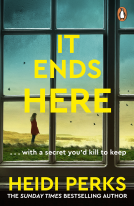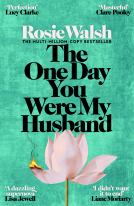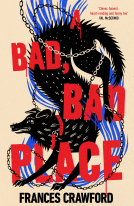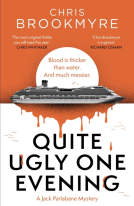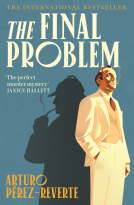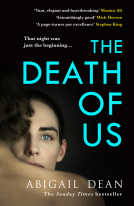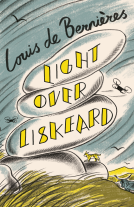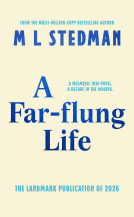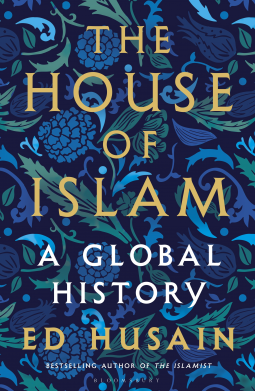
The House of Islam
A Global History
by Ed Husain
This title was previously available on NetGalley and is now archived.
Send NetGalley books directly to your Kindle or Kindle app
1
To read on a Kindle or Kindle app, please add kindle@netgalley.com as an approved email address to receive files in your Amazon account. Click here for step-by-step instructions.
2
Also find your Kindle email address within your Amazon account, and enter it here.
Pub Date 17 May 2018 | Archive Date 5 Apr 2019
Talking about this book? Use #TheHouseOfIslam #NetGalley. More hashtag tips!
Description
A fascinating and revelatory exploration of the
intricacies of Islam and the inner psyche of the Muslim world from the
bestselling author of The Islamist
‘Islam began as a stranger,’ said the Prophet Mohammed, ‘and one day,
it will again return to being a stranger.’
The gulf between Islam and the West is widening. A faith rich with strong
values and traditions, observed by nearly two billion people across the world,
is seen by the West as something to be feared rather than understood.
Sensational headlines and hard-line policies spark enmity, while ignoring the
feelings, narratives and perceptions that preoccupy Muslims today.
Wise and authoritative, The House of Islam seeks to provide entry to the
minds and hearts of Muslims the world over. It introduces us to the fairness,
kindness and mercy of Mohammed; the aims of sharia law, through commentary on
scripture, to provide an ethical basis to life; the beauty of Islamic art and
the permeation of the divine in public spaces; and the tension between
mysticism and literalism that still threatens the House of Islam.
The decline of the Muslim world and the current crises of leadership mean that
a glorious past, full of intellectual nobility and purpose, is now exploited by
extremists and channelled into acts of terror. How can Muslims confront the
issues that are destroying Islam from within, and what can the West do to help
work towards that end?
Ed Husain expertly and compassionately guides us through the nuances of Islam
and its people, contending that the Muslim world need not be a stranger to the
West, nor its enemy, but a peaceable ally.
Available Editions
| EDITION | Hardcover |
| ISBN | 9781408872260 |
| PRICE | £25.00 (GBP) |
Average rating from 56 members
Featured Reviews
 Ness C, Reviewer
Ness C, Reviewer
"The House of Islam is on fire - and the arsonist still lives there."
This book is very even-handed in its discussion of the beauty of the Islamic faith and at the same time, does not shy away from the beliefs and practices that Westerners might find difficult. It also doesn't just go through what we might consider "problems" - the end of the book also discusses solutions to issues regarding extremism and the bringing together of Islamic factions without further violent interference.
This is not the definitive guide to Islam - nor does it purport to be. At only 336 pages it can't possibly go into depth on all aspects of the Quran or daily life of a Muslim, but what it does do is touch upon things about which most Westerners have questions. Particularly engrossing chapters were on the Shi'a/Sunni schism (something about which I knew very little - with only Wiki as a guide), Sharia and the role of Women.
I had also, shamefully, never given thought to the fact that all Muslims will follow the teachings of the Quran in Arabic, whether or not Arabic is their mother tongue, whereas in the Christian world, followers are able to hear and read their religion in their everyday language.
This book caused a lot of debate in our house and made me ask questions of myself and views of others, which is surely its purpose.
I took one star off here because I would have liked more footnotes to support some of the statements made. For example, in my electronic copy, the following interesting statement is made in the section on Education: "An Arab individual reads on average a quarter of a page a year, compared with the eleven books read by an American or seven by a British person." I would love to know where this data came from, without doing independent research for the source.
As a fiction fan, this is a rare non-fiction book for me to have selected and it was based purely on the subject matter that I decided to give it a go and I'm glad I did.
Thank you to NetGalley, Bloomsbury Publishing Plc and Ed Husain for this ARC, provided for the purposes of an honest review.
 Cecilia W, Reviewer
Cecilia W, Reviewer
Wow, I have read this book with complete fascination. I have learnt a huge amount and I believe it’s very valuable information needs to be seen by as many people as possible. The author is the authority to listen to on the truth of the Muslim world - it’s history from its formation, it’s teachings and it’s humiliation caused by the rise of the west. He describes who and what the Muslim world is and is made up of - in other words - he shows us the beauty of the religion and how it is portrayed and abused. I must read for everyone concerned for our future.
 Librarian 250745
Librarian 250745
I knew comparatively little about Islam, like many Westerners I suspect. This book managed to be relatively unbiased whilst still being both accessible to a non-Muslim audience without shying away from practices non-Muslims might find troubling. I wouldn’t say I was anything approaching an expert on this difficult and convoluted subject with all its ramifications and variations, but I feel having read this book, that I am now slightly better informed. Very readable non fiction presented in an informative and interesting way.
 Lisa B, Reviewer
Lisa B, Reviewer
Very interesting read, especially in the times we are in with all the problems islam brinmgs to the world today. Everyone should read this book
 Alan G, Reviewer
Alan G, Reviewer
Thanks to Net Galley and the publishers for the opportunity to review an ARC of this publication.
As an individual who is not of this faith, I was intrigued to find out more about it and gain an understanding of the real meaning and beliefs of this religion.
This publication was skilfully written and a fine balance between the origins of it, explaining the main principles and how certain sections have taken recent action in the name of their religion. The introduction suggested to place any pre-conceptions aside and that's exactly what I did.
As a result I have come away with a far greater understanding of the principles of this religion and feel better placed to understand a lot of the issues and conflicts in our 21st century world.
 Joseph S, Reviewer
Joseph S, Reviewer
House of Islam: A Global History by Ed Husain is a history and explanation of Islam by an educated Western Moslem. Husain is a writer, adjunct senior fellow for Middle Eastern studies at the Council on Foreign Relations in New York, and a former senior advisor at the Tony Blair Faith Foundation. He is the author of The Islamist, a book about political Islamism and an account of his five years as an Islamist activist. Husain cofounded, with Maajid Nawaz, the counter-extremism organization the Quilliam Foundation.
In the West, there seems to be a single definition of Islam that is portrayed in the media and in the minds of many. This seems to include ISIS, the Taliban, and sharia law. However, Christianity is a peaceful religion that promotes charity, treating all people well, and the Golden Rule. Jesus' message was one of love and inclusion. We seem to hold polarizing views. No reasonable person would say that the Westboro Baptist Church and its message represents mainstream Christianity. The same can be said of the Aryan groups' version Christianity. Today we in the West oppose slavery when it was part of the Christian past. I have not read of modern Jews practicing Deuteronomy 21:20-21. There are parts, and laws, of the Bible that are no longer parts society. Just because something is in the Bible does not mean it is practiced.
Husain is a first generation British Moslem. What makes this book so important is it is written by a Western-raised and educated Moslem. He joined the Islamic Society of Britain. Studied Arabic in Syria, and worked for the British Council in Saudi Arabia. His first name is actually Mohamed but students started calling him Ed. What Husain presents in this book is a history of Islam that explains the religion by a practitioner who is also an educated and successful Westerner. He speaks to an audience that he is part of.
House of Islam covers the history of the religion from Muhammad through the Sunni Shia schism and into modern times. Also discussed is Sufism which brought forth some of the regions best poets one that most have heard of or read -- Rumi. This is followed by sections on Ottoman Turkey and Islamists.
Relations with the Jews is covered n great detail. In Indonesia, a non-Arab Moslem country, 47% of the population had a low opinion of Jews. An interesting poll considering Indonesia does not have the history and interactions that Arab countries did and still do. Education is another interesting subject:
‘Knowledge and wisdom are the lost properties of the believer,’ taught Imam Ali, ‘so seek them even if they be with infidels.’
Today many see education as memorizing large tracts of the Koran in Arabic but without understanding the language. Memorizing is more important than understanding. Perhaps pre-Vatican II Catholics share the similar experience. As with other subjects, Hussain separates canon from cultural tradition in explaining laws, women, and sex in Moslem countries. Traditions play a large role in the culture. There is nothing in the Koran that states women must wear black in public but in countries like Saudi Arabia, there is little, if any, variation.
House of Islam presents an even view and explanation of Islam and its history. Hussain separates the words of the prophet from tradition and sayings that are attributed to Muhammad. He presents a sensible and easy to follow description of the religion that would benefit many in the West.
 Kushnuma S, Reviewer
Kushnuma S, Reviewer
I requested this copy as I was keen to learn more about the history of Islam. Being a Muslim, I have heard and read about the various aspects but I learned quite a lot more than I expected from Ed Husain's book. Like Ed Husain, I'm also from India but raised in the Western world, in London.
There were things that I was quite surprised to find out about other Muslims and the past. I even got goosebumps at some points. I also agreed with the majority of what Ed has said about the terrorists not really being Muslims, as what they have done and are doing is against Islam.
Thank you NetGalley and Bloomsbury for providing me with an advanced copy.
 Reviewer 247162
Reviewer 247162
This is a very accessible, engaging and well-researched book. This book strikes a good balance between information - not too simple and not too complex.
A fascinating and easy to read book that does an excellent job of filling in the many gaps I had in my knowledge of Islam and what makes its believers tick. Whilst I was well aware of the diversity of approach of Muslims in general, this book provides the missing details. What it did not provide for me was sufficient detail on the life of Muhammad and why he was chosen. To my mind, an essential part of the foundations that the House of Islam is built upon.
All three peoples of the Book share a belief in an omnipotent being whose words have been debated by the Learned, the Wise and the not so wise for many Centuries, providing dogma for all believers that frequently excludes the beliefs of others, even those whose share their origin - Jew, Muslim, Christian.
This book succinctly shows the divisions within Islam and that belief is still ambiguous.
 Barbara M, Reviewer
Barbara M, Reviewer
I was very interested in reading this book as I spent 15 years living in Saudi Arabia and saw how religion influenced all aspects of life there. A very informative and easy to read book which I thoroughly recommend.
 Jackie M, Book Trade Professional
Jackie M, Book Trade Professional
A very interesting and informative book, also very wise. Alarming too, yet ultimately hopeful. A book that speaks a lot of sense and should be widely read.
 Alison M, Librarian
Alison M, Librarian
This is definitely a book I will dip in and out of as it is a lot more detailed than I expected, probably suited more to someone studying Islam rather than a genuine desire to have a greater knowledge of this religion. Very well written but not read it all and will probably space this out over the next few months.
 Gemma K, Educator
Gemma K, Educator
I feel a book like this is needed at this time. It urges people to real understand Islam rather than the islam that is portrayed on the news. It also answers a lot of questions that people may have about Islam. I found this book hard going and must admit I skim read parts of it however it was a worthwhile educational read and I am glad I have read it. I would recommend to family and friends.
 Han H, Educator
Han H, Educator
This is a perfect book for anyone studying Islam. While i’ll be using it for my own benefit, it will be a recommended read for my higher thinking students who need to be pushed intellectually before being trapped in the pitfalls of GCSE.
It splits into three informative sections that firmly root Islam into a contemporary society. It will give my students a rich insight that the core GCSE texts will not.
 Daniel S, Reviewer
Daniel S, Reviewer
A fantastic read. Thoroughly enjoyed this and it is not something I would usually pick up. Will look for more from this author in future.
 Lee P, Educator
Lee P, Educator
This is an absolutely outstanding and fascinating look at Islam which has given me a huge amount of insight I could not have accessed otherwise.
As an outsider looking in, Islam and much of what formed the core of the belief system around it can seem a little confusing and difficult to access. I have previously made attempts at better understanding Islam without much success. I have worked in schools in which 90% of the children I taught were Muslim, I have visited Mosques, and I have read The Quran. And yet, I was still left feeling like I had learned little of what was really important to the Muslim community I lived and worked among. I still felt like an outsider trying to look into the house of Islam and finding the curtains to be drawn shut. It is a difficult religion to explore from the outside. A huge part of this is to do with how communities have developed over time, but another fundamental part of this is how Islam is approached as a subject area in UK schools.
Much of what is taught in school today (I am mainly discussing primary schools here) is very similar to what it was when I studied RE in school myself twenty years ago. It is a subject area which develops slowly and can be frustratingly overlooked. A lot of this has to do with it not making up a core part of the UK National Curriculum. This, and a combination of poor training in RE teaching coupled with pressure on teachers to deliver in other subject areas deemed more important mean that children today are often given a very limited look at religion delivered by people who themselves likely had a very limited study of religions other than their own.
No doubt the result of much of this superficial study of religion forms a basis for the face value only way in which religion is presented by media and therefore how it is looked upon by many people from outside of the religion itself. Often we are given a very basic one sided view and this creates a bias which is hard to avoid without knowledge of alternate views and accurate research. What this books does brilliantly is present a balanced look at numerous versions and parts of Islam and adherents of different forms of the religion.
Books like this are exactly what are needed to help in education. This is the sort of text that can allow adult readers a look in far greater depth at religions while still being an accessible book which avoids putting readers off. This is a well written, well crafted and brilliantly researched look at Islam. I only wish I knew of books as good as this on every major religion.
 Reviewer 354614
Reviewer 354614
Easy accessible book about the Islam as a faith and religion. As somebody curious about the Islam this was informing and much appreciated.
 ALYSON R, Reviewer
ALYSON R, Reviewer
I requested and read this book with the aim of trying to understand more about the Islamic faith. I don't know enough to say for certain if all the important topics were covered and how well, but it seemed to me to be giving a fairly thorough and even handed description of the religion. I did learn more and in doing so have raised more questions for myself to seek answers to.
 Nellie T, Reviewer
Nellie T, Reviewer
A surprisingly balanced and accessible book dealing with many of the topics surrounding Islam in today's society. It doesn't hold back. There's a common theme of extremism, mainly Saudi ideology, which, it is argued, has poisoned the Muslim world.
It's not an easy read, neither from the perspective of the subject matter nor, as a non-Muslim, from the lack of understanding of the intricacies of the religion but it does pay to persevere. A worthy read for those interested.
 Leslie G, Book Trade Professional
Leslie G, Book Trade Professional
At halfway point, so piqued by this, I wrote a review but held back to get farther on - I think the author's take on Western philosophy and Christiandom is perhaps irksome and incorrect, but the observations he makes on the Arabian backdrop of Islam is extremely interesting (although Tom Holland's book seems to have a different take on origins of Islam, focusing on Iran and Iraq, it seems to me). But the very tenor of voice in Husain's book makes it extremely readable and persuasive and once I got going I could not put it down - its point of view is refreshing and seems thoroughly informed which is what is its excellence. The point of view is definitely not western and so we get a different colouration to attitudes and practices of Islam that is salutary and necessary. Really fine - and while I sense that the purpose of this book is polemical, i admire it. With the caveat mentioned above...!
 PAUL W, Reviewer
PAUL W, Reviewer
This book aids understanding of the Muslim faith and discusses how the West can help Muslims to confront those who are destroying Islam from within. It was a thoroughly engaging read, that is great for those who know a bit about Islam but equally is easily readable by those who are curious to know more. It appears to have been written especially to target those who may have pre-conceptions about the Islamic faith, the author rightly requests you set those aside in the introduction.
‘Knowledge and wisdom are the lost properties of the believer,’ taught Imam Ali, ‘so seek them even if they be with infidels.’
A really accessible view and explanation of Islam and its history and into modern times. It's very easy to read with great follow-ups.
Although I am not a religious person, I am intrigued by the intricacies of all of the religions. Islam fascinates me the most, and not only because of the events of past few years and decades. There has been a lot of focus on the terrorist attacks around the globe, where the perpetrators have been overwhelmingly Muslim. These attacks have substantially been carried out against Western countries. The reason given by those perpetrators who are still alive, is the bombing of Syria. But is there a deeper reason to why they seem to target the West more than anywhere else?
For centuries scholars have debated the meaning of the words in their Holy book. The earlier Qur'anic passages urge peace, restraint and conciliation, the later ones exhort violence. These are obviously polar opposites, so how should they be taken? Due to the divergence of these passages, those who subscribe to either one cannot win the argument over which should take precedence.
Needless to say, there is a huge problem regarding the interpretation of all of the religious books, not just the Qur'an. One individual may have a completely different understanding of their text to another. Also, times have changed considerably from the days these religious books were written, this can also alter how their passages are interpreted. There is no-one left on earth that can clarify the meaning so, basically, this results in lots of opposing views inside of the same religion, and the creation of sects.
I agree with the synopsis of THE HOUSE OF ISLAM, wholeheartedly. Most people in the West, see Islam as something to be feared rather than understood. I feel the media and others have exploited the fear in Western citizens by creating sensationalist headlines that stoke the fire of hatred towards the Muslim world, in the same way the extremists have exploited the passages of the Qur'an to suit their own ends. Graeme Wood, in his article, "What ISIS Really Wants", puts it like this, "violent groups have interpreted verses to endorse their violent actions". And... there we are, back to interpretation again!
This book aids understanding of the Muslim faith and discusses how the West can help Muslims to confront those who are destroying Islam from within. It was a thoroughly engaging read, that is great for those who know a bit about Islam but equally is easily readable by those who are curious to know more. It appears to have been written especially to target those who may have pre-conceptions about the Islamic faith, the author rightly requests you set those aside in the introduction.
This title has taught me a lot about the history of Islam. It is accessible and extremely well-researched. I did a bit of digging on the author and believe that he is more than qualified to write this important book. Husain is a British Muslim, raised in London, and is a senior fellow for Middle Eastern studies at the Council on Foreign Relations in New York, a former senior advisor at the Tony Blair Faith Foundation, and co-founder of the Quilliam Foundation, a counter-extremism organisation.
I feel that THE HOUSE OF ISLAM would answer a lot of the questions present in Westerners minds about Muslims and the Islamic religion so I urge those who have learned all they 'know' about Islam from the TV or from newspaper headlines to read this. It will give you a much better understanding of the nuances and history of Islam.
Highly recommended.
I would like to thank Ed Husain, Bloomsbury Publishing Plc (UK & ANZ) and NetGalley for the opportunity to read an ARC of this title in exchange for an honest review.
 Jim S, Reviewer
Jim S, Reviewer
This is a detailed and fascinating account of the history of Islam and its modern cultural forms written by somebody who clearly knows his stuff. The book delves into the history, explaining the factionalism in the Muslim world, but also thematically discusses modern Muslim attitudes to life, birth and death. Along the way, it is properly critical of the Western attitudes and posturing which have driven the Islamic world into extremist cul-de-sacs on so many occasions since the Crusades!
The main target of the book is a form of Islamic fundamentalism called Salafism associated predominantly with Saudi Arabia but spread across the Middle East and, increasingly, across the globe. Ed Husain clearly blames this and similar extremist versions and interpretations of the Quran for much of what people commonly associate with the Islamic world today which, in a nut shell, is that substantial majorities of the population in most European countries associate Islam with terrorism. That is something which both Islam and the West have to deal with. However, he also points out that the Muslim world is multinational and the West's tendency to focus on extremist views and practices can also legitimise the jihadi and the terrorist. At the same time, the destabilisation of nations, a tendency to conflate war with punishment, the accidental creation of failed states and refugees, together with a failure to resolve the intractable Israeli problem drives futureless young Muslims into the arms of the jihadists.
At times, the book is polemical and, as a reader, you have to make your own decisions. I found him too easy going on the state of Israel and the occupied territories but I respected his analysis of the way that women are still oppressed in the Muslim world and the way that an insecure male population - economically and politically oppressed for centuries - now fears female sexuality and takes it out on the women.
That is by the way. The broader message of the book is that Islam is a religion with its own prophets, a supreme being, a prospect of a better afterlife, a positive culture that accentuates neighbourliness, a respect for the family and the promotion of hygienic practices. So far so good, but religions soon develop into factionalism and internal wars and disputes. That leads onto extremist values and differences holding sway and then to murder, martyrdom, the repression of 'difference' and, finally, catastrophic violence as religion and state become confused.
It's a familiar story. It's what Christianity did to the world for around 2000 years and you can dispute whether people are drawn to the notion of God or whether God is a convenience for those in power to maintain their social control. However, what we do know about Christianity is that - broadly speaking - it has run out of steam. That ignores some fundamentalist Christians in the United States for whom a form of jihadism and hate is second nature but we are unlikely to see non-believers put to the sword or burned at the stake by the current collection of archbishops and cardinals!
It might seem reasonable to suppose that the same thing will eventually happen to Islam and Ed Husain makes the sensible suggestion that increasing political union in the Middle East is a good way forward. Will it happen? He also notes how the United States and the West spent $3 trillion on 'liberating' Iraq but precious little on rebuilding it for the long term.
In the end, there is no doubt that Islam has a problem but the solutions have to come from within, facilitated by a new approach in the West. It is hard to be optimistic about that at the moment but this book provides an informative way of understanding the key issues.
I’m an atheist but I would never deny others the right to follow any religion – although I would really prefer their religion to promote tolerance, peace and fairness. I have friends who are Jewish, Christian, Sikh, Hindu and, since I live and work in Bradford, many who are Muslim. I am always interested in learning about what other people believe in and also how their faith is reflected in their everyday life so I was keen to read Ed Husain’s House of Islam. I read his earlier book, The Islamist, an account of his youthful brush with the world of more politicised, radical Islam and how he moved away from it: this book promised to be a more rounded and mature look at a major world religion.
Firstly we get a pretty comprehensive history of Islam – its origins, its early schisms and spread around the world. The rise of various sects is covered and some of them are fairly roundly criticised. What is important to Husain – whose particular brand of Islam is based on Sufism, a very spiritual form of the faith – is the essence of the religion, the feelings it should create, rather than strict obedience to man-made laws. As a person who doesn’t follow the directions of any religion this is a good distinction – I like the idea of a world filled with good people rather than Christians/Jews/Muslims/Jedi who follow a set of rules which can cause difficulties, or even suffering, to those who are not following in the same way. Specific areas are considered – sharia law (which almost certainly doesn’t mean what you think it does…), the role of women, education and sex, the relationship between Islam and Judaism and attitudes to death – and some suggestions are made. These mostly seem to be a plea for a greater understanding of the full range of possibilities for Islam. Although there are many Muslims in the West the view of them held by many non-Muslims is that of one particular aspect of the faith. Often this is that of more extreme versions of what is, at heart, a peaceful faith.
I realise that Husain is giving his opinion here. He doesn’t speak for all Muslims, or even for all moderate Muslims. But he does speak very passionately and persuasively about something he seems to believe in wholeheartedly. Solving the problems of extremism (in all religions) can never be easy but a deeper understanding of other faiths would be a good place to start. I feel I have gained some of that understanding by reading this book.
 Tissy E, Reviewer
Tissy E, Reviewer
An insightful look at Islam and the historical journey of 'modern' muslims. It captures the political/economic struggles between religion and the West and even the layered intricacies of Arab vs non-Arab muslims.
The author also has a way of shining a light on things that you may have already known but he frames them in a very pragmatic and articulate way. For instance the passages on the Enlightenment era - many of us know that some of the 'great' philosophers came up with some interesting and groundbreaking ideas on life but they were also very arrogant, flawed and racist individuals. This kind of gets whitewashed/ignored in the school books but I'm glad whenever it's pointed out.
I found the writing style was almost conversational which kept the pace moving nicely - like you're in a lecture hall having a discussion with your professor. It's a very engaging book but there were some blocky passages which could have done with tightening up. Overall though it was very informative and quite balanced.
Readers who liked this book also liked:
Created by Hayao Miyazaki
Comics & Graphic Novels, Sci Fi & Fantasy
